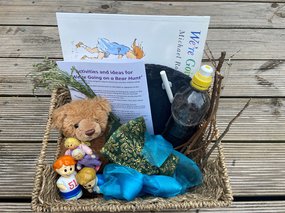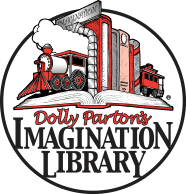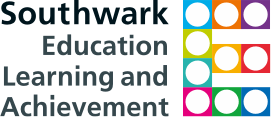Early Literacy
Promoting Early Literacy
Early literacy development is a vital part of children’s overall development. It’s the foundation for doing well at school, socialising with others, problem-solving, making decisions, developing independence, managing money and working
There are some key points to consider when we think about early literacy;
-
Literacy is the foundation for reading, writing, communicating and socialising
-
Early literacy is learning about sounds, words and language
-
We can support and encourage early literacy development by communicating with children, reading, and playing with rhyme
-
Children develop and learn best through everyday, fun activities like singing, talking and games
Early Literacy and the EYFS
What the EYFS says about literacy, 'It is crucial for children to develop a life-long love of reading. Reading consists of two dimensions: language comprehension and word reading'
It also comments that, 'Language comprehension (necessary for both reading and writing) starts from birth. It only develops when adults talk with children about the world around them and the books (stories and non-fiction) they read with them, and enjoy rhymes, poems and songs together
Skilled word reading, taught later, involves both the speedy working out of the pronunciation of unfamiliar printed words (decoding) and the speedy recognition of familiar printed words.
Writing involves transcription (spelling and handwriting) and composition (articulating ideas and structuring them in speech, before writing)
There are three areas linked to literacy in the EYFS, these are
Reading comprehension - you can watch a video here for more information
Exploring word - more information can be found by wathing this video here
Writing - please watch the video for more information
For more infomration on embedding early literacty in your setting please see the link below
Literacy - Help for early years providers - GOV.UK (education.gov.uk)
*NEW FOR 2025*
Some minor updates to the Help for early years providers : Literacy can be viewed by clicking the link, which will take you directly to the page for literacy
National Literacy Trust have produce some useful resources to support early years literacy - see the link below
Early Words Matter Conference: Their story starts with you
On 19 March 2025, expert speakers, including Dr Dan Wuori, Dr Stella Louis and Greg Bottrill, will explore how to work effectively across sectors to help every child to find their voice
Youc an booka place by clciking on this link Early Words Matter conference: Their story starts with you | National Literacy Trust
Overview of the conference:
Working together to support every child to find their voice
All children are unique. Fostering provision which values and responds to all children’s voices, across settings and the home learning environment, is vital for learning and well-being in the first 1001 days.
The election of a new Labour government on 4 July 2024 has ushered in an era of new possibilities for the early years sector. Education Secretary Bridget Phillipson has said that “Early years is [ ] about giving every child the best possible start in life, which is why it’s my number one priority and right at the centre of my vision for education in this country.”
As we continue to implement our pioneering Early Words Matter campaign to support the communication, language and literacy skills of 250,000 children aged 0-5 in 20 of the UK’s most disadvantaged communities over the next 5 years, we are well placed to explore how to harness new opportunities within the sector and place children at the centre of their provision.
The Early Words Matter conference will provide an opportunity to explore the latest research and thought leadership in this space, and celebrate the incredible work that you do.
Confirmed speakers:
- Dr Stella Louis
Dr Louis is an early years consultant, trainer and author. Her publications include Observing Children in Early Childhood (Sage Publications, 2022) and, with Hannah Betteridge, Lets Talk About Race in the Early Years (Routledge, 2024). Dr Louis leads a small team of Froebelian traveling tutors and has worked both in the United Kingdom and internationally to develop a Froebelian approach to teaching and learning.
Dr Louis will discuss schemas, and how children use play as a starting point to extend their schematic explorations. - Greg Bottrill
Greg is an experienced early years practitioner and consultant, and author of Can I Go And Play Now? (Sage Publications, 2022), School and the Magic of Children (Sage Publications, 2020) and Love Letters To Play (Sage Publications, 2022). Greg advocates for children being co-creators of their education, and runs an extensive range of workshops designed to help settings to improve their provision.
Greg will explore the power of the words we use in early years, and how they might be used to enrich communication. - Dr Dan Wuori
With more than 30 years of early years leadership, Dr. Wuori is the founder and president of Early Childhood Policy Solutions, a U.S.-based public policy consultancy, and has worked alongside governors and state legislators to improve early years policy across the United States. He is the author of The Daycare Myth: What We Get Wrong About Early Care and Education (and What We Should Do About It (Teachers College Press, 2024), and is known for his innovative use of social media to provide joyful and informative video footage of children's learning and development.
Dr Wuori will outline the three simple truths of early development, referred to in Daycare Myths and drawn from decades of scientific research, and explore their implications for children, families, and the UK’s long-term prosperity. He will call on parents, professionals, and elected leaders to revisit their decision making in accordance with these critical lessons.
- Jan Dubiel
Jan is a nationally and internationally recognised specialist in early childhood education, and in 2018 was identified by the Times Educational Supplement as one of the ten most influential people in British education. He was appointed by the then Qualifications and Curriculum Authority (QCA) to lead on the management of the (Early Years) Foundation Stage Profile. Jan was previously the Head of National and International Development at Early Excellence and Director of Early Years for AISL Harrow International schools and Bilingual Kindergartens. Jan currently works as Project Director for hey! at Coram Hempsall’s. He has written widely on different aspects of early years policy, pedagogy and practice and is the author of Effective Assessment in the EYFS (SAGE, 2014).
Jan will explore why, in order to be successful, the professional and pedagogical repertoire of those working in early years will be personal, eclectic, and evidence-informed, and will need to belong to the individual educators.
*LATEST NEWS FROM 2024*
New for October 2024
Early Words Together 3-4 Years Programme
Currently delviering in Southwark - for more details about the Early Words Programme(s) please click on the link, which will take you directly to the Natinonal Literacy Trust website Early Words Together | National Literacy Trust
Added for July 2024
PACEY has an interesting page on Literacry which can be found by clicking on the link Literacy in the early years | PACEY
They have shared a great resource on their website for using the story - A Very Hungry Caterpillar to extend learning - details as below or click here
A firm favourite
Do you love The Very Hungry Caterpillar? Download from Pacey their free early years resource pack for lots of fun ideas to help extend children's learning
April update: Opportunities for training
Making it REAL training (ncb.org.uk)
Preparing for Early Literacy
See below for a very useful and informative poster on preparing for early literacy
Preparing_Literacy_Poster.pdf (d2tic4wvo1iusb.cloudfront.net)
have developed a short video of 5 top tips for encouraging early literacy. Click on the link to watch the video Literacy in the early years | PACEY
Promoting and preparing for literacy
In our early years settings there are some points we can consider to build and stregthen literacy skils, these are commonly know as strands;
-
books, books, books (reading books, sharing books)
-
early writing (mark making opportunities)
-
environmental print (signs, logos)
-
and oral language (phonological awareness; syllables, rhyme, poems, practice and try out new words)
We can also support the above strands by;
-
providing and offering as many opportunities as possible to make literacy part of everyday practice within the curriculum we offer to chidlren
-
we need to ensure we offer praise and acknowledging chidlren's successes and recognising their unique achievements
-
key to all these things is having quality interactons with children, that buld on thier interests and fascinations
-
and be a role model for using and literacy, sharing a love of books, singing songs and saying rhymes, giving children asmany possibilities to practice their words and introdcue eciting new words everyday to help build their vocabualry
-
 The Education Endowment Foundation (EEF)
The Education Endowment Foundation (EEF)
The Education Endowment Foundation have developed an interesting guidance entitled: 'PREPARING FOR LITERACY: Improving communication, language and literacy in the early years', Please click here to access the guidance
The guidance focuses on the teaching of communication, language and literacy to children between the ages of three and five and highlights aspcets such as;
-
prioritising the development of language and communication
-
develop children's early reading, using a balanced approach
-
Support parents to understand how to help their children learn
As well as using high quality support strategies to target children who may be struggling and embedding opportunities to develop self-regualtion, which is all about how children manage their own behaviour and aspects of their learning
New for July 2022
The Department for Education (DfE) brings you a teacher's perspective of making final judgements against the new writing Early Learning Goal for the new Early Years Foundation Stage Profile (EYFSP).
Read about how this school have adapted their approach to assessing writing following the reforms and how they use the new writing ELG to assess their children’s writing to support transition to year 1
Blog: Writing in Reception | From pregnancy to children aged 5 (foundationyears.org.uk)
New for September!
https://www.eif.org.uk/resource/early-years-library
The Art of Story Telling

What is a story sack
A story sack is a collection of items in a bag or container that can be used to support and extend the telling of a story
Why are they so useful?
Story sacks have the power to ignite children’s imaginations. They can make stories more accessible to everyone, including children for whom English is not their first language, and children with additional needs or disabilities
You could create a library of story sacks in your setting which can be used with small and large groups or could be sent home to support parents and carers
Using story sacks in your early years setting will:
- Encourage interactions and communication
- Enhance children’s vocabulary and language
- Support children with their own storytelling and role play
Please see the links below for guides on creating story sacks and some examples to use to build your story sack library!
Story_sack_Guide.pdf (literacytrust.org.uk)
My_Pet_Star_story_sack_guide.pdf (literacytrust.org.uk)
The_Three_Litle_Pigs_story_sack_guide.pdf (literacytrust.org.uk)
Were_Going_on_a_Bear_Hunt_story_sack_guide.pdf (literacytrust.org.uk)
New for December 2022
Supporting early years children to tell stories | National Literacy Trust
Everyone Ready for School | National Literacy Trust
Update: April 2023
The National Literacy Trust - have a number of resources to help and support settings to develop children's early literacy skills. Please click the link to access NLT website and you can browse the site for ideas on develping practice and depeening knowldege on activities and experiences to extend this provision in your setting Resources and tools for early language development and parental engagement | National Literacy Trust
Update: June 2023
I have put togeter a list of 20 picture books that support the EYFS curriculum, most of these books have strong links to the Prime Areas of te EYFS, but also support the holistic development of under fives
- The Boy with flowers in his hair - Jarvis
- Hey You - Dapo Adeola
- Lost and Found - Oliver Jeffers
- Little Bear - Richard Jones
- The Lion Inside - Rachel Bright
- I want my hat back - Jan Klassen
- Where the Wild Things Are - Maurice Sendak
- Not Now Bernard - David McKee
- My Pet Star - Corrinne Averiss
- Copycat Bear - Ellie Sandall
- Dragon Post - Emma Yarlett
- The Storm Whale - Benji Davies
- The Girl Who loved Bugs - Lily Murray
- The Dress with Pockets - Lily Murray
- Hair Love - Matthew Cherry
- Julian is a Mermaid - Jessica Love
- My cat likes to hide in boxes - Eve Sutton
- You Matter - Christian Robinson
- Where have you been little cat - Richard Jones
- What do you see when you look at a tree - Emma Carlisle

Please also take time to browse The Book Trust website. The Book Trust is a children's reading charity dedicated to getting children reading. You can access the website here
The Book Trust runs many campaigns and programmes to support story telling, reading and sharing books which you can find out more about here
Update for August 2023
A scheme that is currently run in Southwark to support books and reading is the Dolly Parton Imagination Library

If you have a child in your setting who was born in 2016, 2017, 2018 or 2019, and they live in Southwark, you can make bedtime book time with the Dolly Parton Imagination Library. The child will receive a book in the post every month until their fifth birthday, absolutely free
Dolly Parton’s Imagination Library is a free book scheme which launched in 1995. Southwark Council has joined forces with local company DialAFlight and the Dollywood Foundation to bring the scheme to our borough
Only children with a current Southwark address can register. The system should recognise their postcode and offer address options to choose from to proceed; but if it doesn't and the child and family live in Southwark, you can email their details to Childrenscentre@ivydale.southwark.sch.uk.
Please share details of Dolly Parton’s Imagination Library with your families and either help them to register or advice them how to do this themselves. You can contact Childrenscentre@ivydale.southwark.sch.uk for help and guidance
Alternatively you can find more information and register by clicking on the link United Kingdom - Dolly Parton's Imagination Library
For more localised information click on the link London - Dolly Parton's Imagination Library
For common FAQs click on this link Dolly Parton | Southwark Children A (pprncfc.com)
New for September
Early Years Library | Early Intervention Foundation (eif.org.uk)

